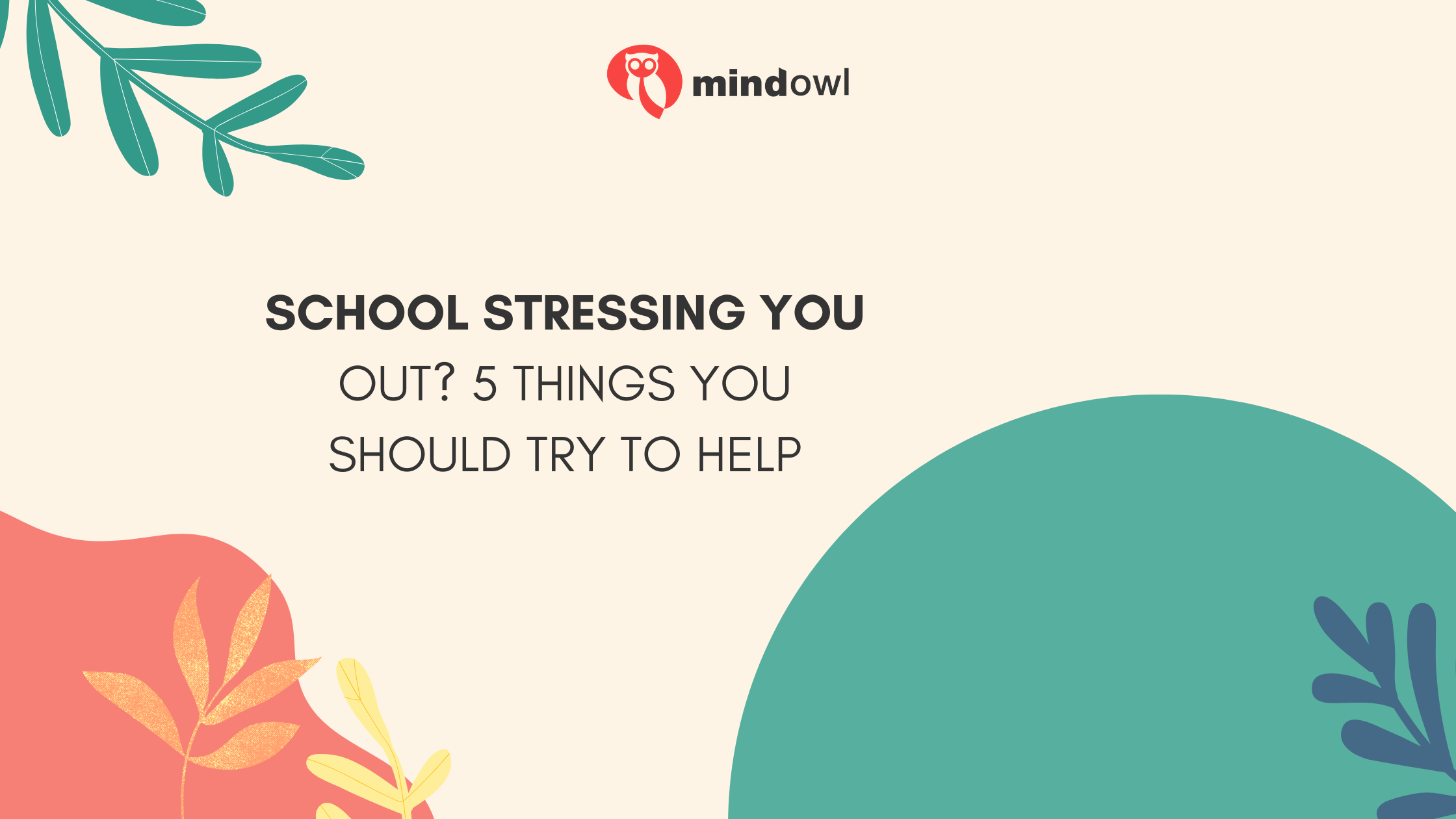
As a student, it’s common (and okay) to feel overwhelmed by the pressures of academic life. Whether you’re juggling multiple assignments, preparing for exams, or trying to balance your studies with other commitments, stress can quickly become a constant companion.
However, it’s crucial to remember there are effective strategies to manage this stress and maintain your well-being. In this article, we’ll explore five practical approaches to help you navigate the challenges of student life and reduce stress.
Mindfulness and Relaxation Techniques
Incorporating mindfulness and relaxation techniques into your routine can significantly reduce stress and improve overall well-being. These practices help you stay grounded in the present moment, allowing you to approach your studies with a calmer and more focused mindset.
Start with Short Mindfulness Exercises
The “5-4-3-2-1 grounding technique” is an excellent starting point. Here’s how it works:
- Identify 5 things you can see.
- Acknowledge 4 things you can touch.
- Listen for 3 things you can hear.
- Notice 2 things you can smell.
- Focus on 1 thing you can taste.
This simple exercise helps centre your attention on your immediate surroundings, reducing anxiety and promoting a sense of calm.
Practice Deep Breathing
Deep breathing is a powerful tool for managing stress. Try this simple technique:
- Stand or sit comfortably with your feet shoulder-width apart.
- Relax your arms and hands.
- Close your eyes.
- Focus on your lower abdomen, imagining a small balloon in that space.
- Breathe in slowly and deeply through your nostrils, imagining the balloon inflating.
- Hold for a few seconds.
- Slowly exhale through your mouth, imagining the balloon gently deflating.
Repeat this process several times, focusing on the sensation of your breath.

Progressive Muscle Relaxation
This technique involves tensing and then relaxing different muscle groups in your body. Here’s a simplified version:
- Start with your facial muscles. Raise your eyebrows, hold for 5 seconds, then relax.
- Move to your shoulders. Lift them towards your ears, hold, then relax.
- Continue this process down your body, including your arms, hands, chest, legs, and feet.
This exercise helps release physical tension and promotes overall relaxation.
Create a Calming Environment
Designate a quiet area in your study space where you can practice these techniques. Consider adding comfortable seating and calming visuals in your space. Having plants in your room has shown to be effective in reducing stress by up to 37%. Soft music and/or a white noise machine can also be effective in reducing anxiety. Aromatherapy diffusers with calming scents like lavender and eucalyptus can also help. Having a dedicated relaxation space can make it easier to incorporate these practices into your routine.
Stay Organised
Staying organised is crucial for managing academic stress. By implementing effective organisational strategies, you can gain better control over your workload and reduce feelings of being overwhelmed.
Use an Academic Planner
An academic planner is an invaluable tool for keeping track of your commitments. Make the most out of it by recording all assignments, exams, and important dates as soon as you receive them. Use it to break down larger projects into smaller, manageable tasks and assign due dates. Use colour-coding to differentiate between subjects or types of tasks and review your planner daily to stay on top of upcoming deadlines.
Create a Personalised Study Schedule
Develop a study schedule that aligns with your peak productivity hours. You can do this by identifying your most productive times of day and allocating these periods for your most challenging or important tasks. Include regular breaks to maintain focus and prevent burnout, and remember to be flexible and adjust your schedule as needed.
Utilise Visual Aids
Visual representations of your tasks and goals can boost motivation and clarity. Create a visual timetable of your weekly commitments, use a wall calendar to mark important dates and deadlines, and employ mind maps to brainstorm and organise ideas for assignments.
Declutter Regularly
Set aside time each week to organise your physical study space. Make sure you’re regularly cleaning up your digital files and email inbox; use folders (both physical and digital) to categorise and store materials, and dispose of or archive materials you no longer need.
Talk to Someone
Sometimes, the best way to manage stress is to share your feelings with others. Whether it’s a loved one, teacher, or professional, talking about your concerns can provide relief and new perspectives.
Reach Out to Others
Your personal support network can be a valuable resource, allowing you to share your feelings and concerns with trusted friends or family members, ask for help or advice when needed, and be open to listening to others’ experiences and coping strategies.
Communicate with Teachers
Your educators are there to support your academic journey; don’t hesitate to ask questions or seek clarification on assignments, or discuss any difficulties you’re experiencing with coursework. Ask for feedback on your progress and areas for improvement, and inquire about additional resources or support services available.
Seek Professional Help
Sometimes, you may need more specialised support; utilise your university’s counselling services, consider speaking with a mental health professional who has a certificate in counselling, look into support groups for students dealing with stress, and explore online resources and helplines.
Consider Peer Support Programs

Many schools and universities now offer peer support initiatives:
- Look into peer mentoring programs.
- Join or start a study support group.
- Participate in peer-led workshops on stress management and study skills.
- Consider becoming a peer supporter yourself to help others while reinforcing your own coping strategies.
Take Time to Rest and Socialise
Balancing your academic life with leisure and social connections can significantly reduce stress and improve your overall well-being.
Schedule Regular Breaks
Taking breaks is not a luxury; it’s a necessity for maintaining productivity and mental health.
- Use the Pomodoro Technique: Study for 25 minutes, then take a 5-minute break.
- Take longer breaks (15-30 minutes) every few hours.
- Use breaks to do something enjoyable or relaxing, like listening to music or going for a short walk.
- Avoid using break time for other work-related tasks.
Make Time for Hobbies
Engaging in activities you enjoy can provide a much-needed mental break from studying; set aside time each week for your favourite hobbies, try new activities to broaden your interests and skills, and join clubs or groups related to your hobbies for added social benefits.
Maintain Social Connections
Social support is crucial for managing stress and maintaining emotional well-being. Schedule regular catch-ups with friends and family, join study groups to combine socialising with academic support, participate in university clubs or societies, or consider volunteering for causes you care about.
Practice Digital Detox
While technology is essential for studying, it’s important to disconnect regularly by setting boundaries for social media and email use, designating tech-free times (especially before bed), engaging in face-to-face interactions when possible, and spending time in nature to disconnect and recharge.
—-
By implementing these strategies, you can better manage the stress that comes with student life. Remember, it’s normal to feel overwhelmed at times, but with the right tools and support, you can navigate challenges successfully. Prioritise your well-being, stay organised, and don’t hesitate to reach out for help when you need it. Your academic journey is important, but so is your mental and physical health. Take care of yourself, and success will follow.
MindOwl Founder – My own struggles in life have led me to this path of understanding the human condition. I graduated with a bachelor’s degree in philosophy before completing a master’s degree in psychology at Regent’s University London. I then completed a postgraduate diploma in philosophical counselling before being trained in ACT (Acceptance and commitment therapy).
I’ve spent the last eight years studying the encounter of meditative practices with modern psychology.

